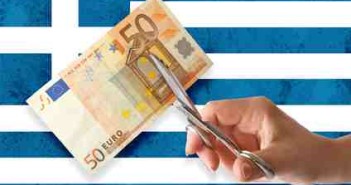The Greek parliament is set to vote on a new president on December 17th in the first of a potential three rounds. The decision was announced just after Greece got a two month extension on its bailout program.
The government wants to clear this significant political hurdle before this short extension ends and while the troika is busy in Athens.
One of the points of contention around Greece was the question of the next president. While this is mostly a ceremonial role, the fragile Samaras coalition and the rise of the opposition led by SYRIZA’s Alexis Tsipras meant that a dispute about this role was a large cloud of uncertainty around the country currently in the crossroads about the next step in its bailout program. In addition to the opposition’s rise, Greece also enjoys a primary surplus, giving it more confidence.
And there’s a good reason: if a president isn’t elected by a wide majority in parliament within 3 rounds, snap elections are held.
Here’s a quote from the eKathimerini article:
According to the Greek Constitution, if no candidate garners 200 votes in the first vote, a second vote follows five days later; if that is inconclusive, a third round is held with 180 votes needed for the election of a candidate. If the final vote is also inconclusive, snap general elections follow a month later.
Opposition anti-bailout leftist SYRIZA is calling to block the vote in the 300 seat parliament and trigger snap elections. The party enjoys a lead in opinion polls after years of austerity, suffering and a huge unemployment rate.
We are already in a tight schedule: the parliament narrowly approved a budget for 2015, but this did not receive the blessing of the EU/ECB/IMF troika.
Will this move by the government succeed and reassert the leadership of PM Antonis Samaras as he negotiates the conditions?
Or will this gamble result in elections? Elections would raise uncertainty regardless of the outcome. And if Tsipras’ SYRIZA indeed wins, negotiations with the troika would become much harder.
Some investors took haircuts on Greek debt in the not so distant past with the PSI program. Tsipras and co. want more debt forgiveness.
The European debt crisis and especially the contagion part of it has subsided after ECB President Mario Draghi’s famous “everything it takes†speech. Bond yields fell across the continent. However, they recently rose in Greece.
While the danger of contagion to other debt struck countries such as Italy seems low, this Greek drama could make things much more complicated. On the other hand, higher bond yields would make ECB QE more effective.
More: ECB Post-Mortem: We remain short EUR– BNPP



